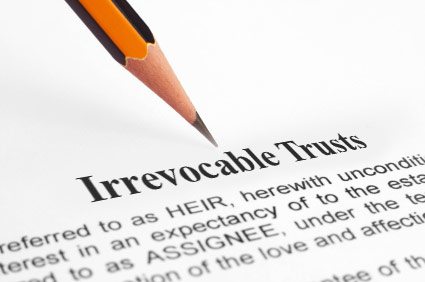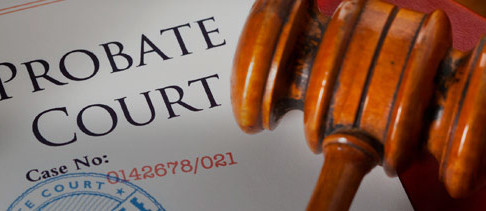How Should I Prepare for a Meeting with a Maryland Probate Attorney?

Before meeting with a Maryland probate attorney, it is important to be as prepared as possible. This post will provide an overview of what you will need and what questions to ask. Begin by thinking carefully about your goals and concerns. If you are uncertain about any aspect of the probate process, come prepared […]
 Posted by reichertlegal
Posted by reichertlegal- Posted in Probate Attorney Baltimore Maryland, Probate Attorney Columbia Maryland, Probate Attorney Pikesville Maryland, Probate Carroll County Maryland, Probate Law Baltimore Maryland, Probate Law Baltimore Maryland, Probate Lawyer Baltimore, Probate Prince George's County Maryland, Probate Prince George's Maryland, Uncategorized
 Jun, 18, 2024
Jun, 18, 2024 No Comments.
No Comments.
What Is Ancillary Probate in Maryland?

When someone passes away in Maryland, their estate typically goes through probate, but if the deceased person owned real estate or other assets in another state, ancillary probate may be required to transfer ownership of those assets to their heirs or legatees. The primary probate process occurs in the state where the deceased person […]
 Posted by reichertlegal
Posted by reichertlegal- Posted in Probate Attorney Baltimore Maryland, Probate Attorney Columbia Maryland, Probate Attorney Pikesville Maryland, Probate Law Baltimore Maryland, Probate Law Baltimore Maryland, Probate Lawyer Anne Arundel County, Probate Lawyer Maryland, Probate Montgomery County Maryland, Probate Prince George's County Maryland, Probate Prince George's Maryland, Uncategorized
 Mar, 15, 2024
Mar, 15, 2024 No Comments.
No Comments.
Letters of Administration for Foreign Small Estate in Baltimore City

If property is located in Baltimore, Maryland, and needs to be transferred via an estate opened in another state, a Foreign Proceeding must be opened. When a Foreign Small Estate is opened in Baltimore City the Register of Wills Office does not issue a Letter of Administration as they would in a regular Small Estate. […]
Read More Posted by reichertlegal
Posted by reichertlegal- Posted in Attorney Baltimore Maryland, Estate Administration Baltimore County Maryland, Estate Administration Baltimore Maryland, Estate Planning Baltimore County, Estate Planning Baltimore Maryland, Probate Attorney Baltimore Maryland, Probate Baltimore County Maryland, Probate Law Baltimore Maryland, Probate Law Baltimore Maryland, Probate Lawyer Baltimore, Wills & Trusts Baltimore Maryland
 Oct, 08, 2020
Oct, 08, 2020 No Comments.
No Comments.
May a Personal Representative or Trustee Demand a Release?

Yes, a Personal Representative may demand a release in the absence of a state statute that says otherwise. Generally, the Maryland Court of Appeals has decided that so long as the release is not written in such a way as to be one-sided or impermissibly favors the trustee’s interest over the beneficiaries, releases that absolve […]
Read More Posted by reichertlegal
Posted by reichertlegal- Posted in Probate Attorney Baltimore Maryland, Probate Attorney Columbia Maryland, Probate Attorney Maryland, Probate Attorney Pikesville Maryland, Probate Baltimore County Maryland, Probate Carroll County Maryland, Probate Columbia Maryland, Probate Frederick County Maryland, Probate Howard County Maryland, Probate Law Baltimore Maryland, Probate Law Baltimore Maryland, Probate Law Maryland, Probate Lawyer Anne Arundel County, Probate Lawyer Baltimore, Probate Lawyer Maryland, Probate Montgomery County Maryland, Probate North Bethesda Maryland, Probate Prince George's County Maryland, Probate Prince George's Maryland, Trusts, Trusts Attorney Baltimore Maryland, Trusts Attorney Maryland
 Jan, 17, 2020
Jan, 17, 2020 Comments Off on May a Personal Representative or Trustee Demand a Release?
Comments Off on May a Personal Representative or Trustee Demand a Release?
Maryland Probate: Personal Representative Moves Out of State

What happens if you are the personal representative, aka executor, for a Maryland estate but then you move from Maryland to another state? The short answer is that you may quality to continue as the personal representative however you will need to file a request to appoint a Maryland resident agent. The resident agent must […]
Read More Posted by reichertlegal
Posted by reichertlegal- Posted in Estate Administration Lawyer Maryland, Estate Administration Prince George's County, Estate Planning Attorney Pikesville Maryland, Probate Attorney Maryland, Probate Columbia Maryland, Probate Law Baltimore Maryland, Probate Lawyer Anne Arundel County, Probate North Bethesda Maryland, Probate Prince George's Maryland
 Jun, 30, 2019
Jun, 30, 2019 Comments Off on Maryland Probate: Personal Representative Moves Out of State
Comments Off on Maryland Probate: Personal Representative Moves Out of State
What Happens to Your Student Loans After You Die?
If you’re struggling to pay off your student loans, you might be wondering who will have to pay those loans back in the event that you or a loved one passes. In general, federal student loans (whether signed with or without a co-signer) are discharged upon one’s death. Private loans, however, will largely depend on […]
Read More Posted by reichertlegal
Posted by reichertlegal- Posted in Probate Attorney Baltimore Maryland, Probate Attorney Columbia Maryland, Probate Attorney Maryland, Probate Attorney Pikesville Maryland, Probate Baltimore County Maryland, Probate Carroll County Maryland, Probate Columbia Maryland, Probate Frederick County Maryland, Probate Howard County Maryland, Probate Law Baltimore Maryland, Probate Law Baltimore Maryland, Probate Law Maryland, Probate Lawyer Anne Arundel County, Probate Lawyer Baltimore, Probate Lawyer Maryland, Probate Montgomery County Maryland, Probate North Bethesda Maryland, Probate Prince George's County Maryland, Probate Prince George's Maryland
 Jun, 05, 2019
Jun, 05, 2019 Comments Off on What Happens to Your Student Loans After You Die?
Comments Off on What Happens to Your Student Loans After You Die?
May 15, 2019 – Baltimore City Office of Finance Hacked, Deed Recording Delays

We recently learned that the computer system at the Baltimore City Office of Finance has been hacked, causing the City of Baltimore to shut down the computer systems for the Tax and Land Records and the Office of Finance indefinitely. As a result, Baltimore City is unable to issue lien certifications, utility bills, or tax […]
Read More Posted by reichertlegal
Posted by reichertlegal- Posted in Deed Filing Baltimore Maryland, Deed Filing Maryland, Lawyer Baltimore Maryland, Probate Law Baltimore Maryland, Probate Law Baltimore Maryland, Probate Lawyer Baltimore, Probate Lawyer Maryland, Property Deed Baltimore Maryland, Property Deed Maryland, Property Law Baltimore, Property Title Service Company Baltimore Maryland, Property Title Service Company Maryland, Real Estate Law Maryland, Real Estate Lawyer Baltimore Maryland
 May, 15, 2019
May, 15, 2019 Comments Off on May 15, 2019 – Baltimore City Office of Finance Hacked, Deed Recording Delays
Comments Off on May 15, 2019 – Baltimore City Office of Finance Hacked, Deed Recording Delays
What if the Personal Representative of the Estate is Deceased?
If you want to assume the place of the Personal Representative due to unforeseen reasons, the matter must be addressed by the court. If the Principle is deceased and the Personal Representative is incapable of performing the duties then we must petition the court in the county of the estate. Until the court rules, no […]
Read More Posted by reichertlegal
Posted by reichertlegal- Posted in Probate Attorney Baltimore Maryland, Probate Attorney Columbia Maryland, Probate Attorney Maryland, Probate Attorney Pikesville Maryland, Probate Baltimore County Maryland, Probate Carroll County Maryland, Probate Columbia Maryland, Probate Frederick County Maryland, Probate Howard County Maryland, Probate Law Baltimore Maryland, Probate Law Baltimore Maryland, Probate Law Maryland, Probate Lawyer Anne Arundel County, Probate Lawyer Baltimore, Probate Lawyer Maryland, Probate Montgomery County Maryland, Probate North Bethesda Maryland, Probate Prince George's County Maryland, Probate Prince George's Maryland
 Jan, 11, 2019
Jan, 11, 2019 Comments Off on What if the Personal Representative of the Estate is Deceased?
Comments Off on What if the Personal Representative of the Estate is Deceased?
How is Property Distributed in Maryland if There is No Will?

After the assets are used to pay estate expenses, debt, and taxes, the rest can be distributed to the closest living heirs. This is done according to Maryland’s intestacy laws. In Maryland, typically a surviving spouse and children would be given priority. If there is no surviving spouse then children would receive the assets equally. […]
Read More Posted by reichertlegal
Posted by reichertlegal- Posted in Estate Administration Attorney Maryland, Estate Administration Baltimore Maryland, Estate Administration Carroll County Maryland, Estate Administration Chillum Maryland, Estate Administration Frederick Maryland, Estate Administration Harford County Maryland, Estate Administration Howard County Maryland, Estate Administration Montgomery County Maryland, Estate Administration Prince George's County, Probate Attorney Baltimore Maryland, Probate Attorney Columbia Maryland, Probate Attorney Maryland, Probate Attorney Pikesville Maryland, Probate Baltimore County Maryland, Probate Carroll County Maryland, Probate Columbia Maryland, Probate Frederick County Maryland, Probate Howard County Maryland, Probate Law Baltimore Maryland, Probate Law Baltimore Maryland, Probate Law Maryland, Probate Lawyer Anne Arundel County, Probate Lawyer Baltimore, Probate Lawyer Maryland
 Jul, 28, 2018
Jul, 28, 2018 Comments Off on How is Property Distributed in Maryland if There is No Will?
Comments Off on How is Property Distributed in Maryland if There is No Will?
Maryland Estates: If a Deceased Person Owes Me Money, What Can I Do?

In order to get the money you deserve the first step is to file a claim against decedent’s Estate with the Office of the Register of Wills. The claim can only be submitted up to 6 months after the person is deceased. This action will place a lien on the estate’s assets so that the […]
Read More Posted by reichertlegal
Posted by reichertlegal- Posted in Estate Administration Attorney Maryland, Estate Administration Baltimore County Maryland, Estate Administration Baltimore Maryland, Estate Administration Carroll County Maryland, Estate Administration Chillum Maryland, Estate Administration Clinton Maryland, Estate Administration Frederick Maryland, Estate Administration Glassmanor Maryland, Estate Administration Harford County Maryland, Estate Administration Howard County Maryland, Estate Administration Lawyer Maryland, Estate Administration Olney Maryland, Estate Administration Prince George's County, Probate Carroll County Maryland, Probate Frederick County Maryland, Probate Law Baltimore Maryland, Probate Lawyer Anne Arundel County, Probate Lawyer Baltimore, Probate Montgomery County Maryland, Probate North Bethesda Maryland
 May, 14, 2018
May, 14, 2018 Comments Off on Maryland Estates: If a Deceased Person Owes Me Money, What Can I Do?
Comments Off on Maryland Estates: If a Deceased Person Owes Me Money, What Can I Do?

 Free Confidential Consultation. Call Now! 410-299-4959
Free Confidential Consultation. Call Now! 410-299-4959 Join Us On Facebook
Join Us On Facebook Join Us On Twitter
Join Us On Twitter Join Us On In.com
Join Us On In.com Subscribe to RSS
Subscribe to RSS Follow Us On Google+
Follow Us On Google+ Subscribe Us On Youtube
Subscribe Us On Youtube Follow Us On Pinterest
Follow Us On Pinterest Follow Us On Instagram
Follow Us On Instagram Follow Us On Tumblr
Follow Us On Tumblr Subscribe Us On Flickr
Subscribe Us On Flickr